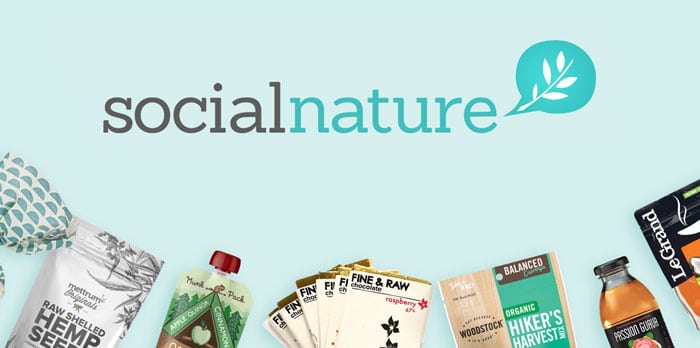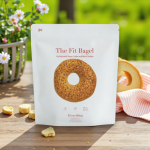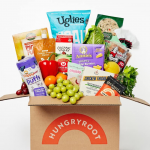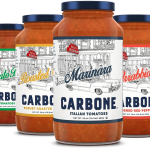The Checkout: Mosa Meat Raises $55M, Social Nature Studies Shopper Priorities
Welcome to The Checkout: an express lane for the weekly news you need to know, always 10 items or less
Mosa Meat Raises $55M
Food technology startup Mosa Meat today announced it had closed $55 million in a round of funding led by Luxembourg-based food tech fund Blue Horizon Ventures. Returning investors Bell Food Group, M Ventures and other mission-based investors and advisors also took part. The funds will be used to scale the company’s cultured meat production in Maastricht.
The new round follows an $11 million Series A round that closed in 2020 and will serve as the first part of what will be a larger series B round.
As part of the deal, Blue Horizon partner Regina Hecker joins the company’s board to assist with scientific and regulatory needs to help the business grow. Blue Horizon’s previous investments include plant-based brands No Evil Foods, Alpha Foods and Rebellyous Foods.
“Following a thorough investigation of its technology and team, we are convinced that Mosa Meat is strongly placed to pioneer the scale-up of cultured meat,” Hecker said in a release.
Founded in 2016, Mosa Meat produces a line of lab-grown cultured beef burgers, which is created using cow cells. Though prototypes of the products were initially too expensive to mass produce, the company has since reduced production costs by 88 times and plans to convert its pilot production facility into a commercial operation ahead of launching a consumer line. The company will also devote resources toward working with European regulators to “demonstrate the safety of cultivated beef,” a necessary step in order to sell the product in retail.
One hurdle in going to market has been addressed, however: the company this year removed Fetal Bovine Serum from its production, calling the ingredient, which is derived from calves’ blood, “morally unacceptable.”
Social Nature: Consumers Seek New Products, Connectedness & Food Safety Info
Health and wellness market insights firm Social Nature this week released a new report on how food and beverage brands can connect with shoppers who are increasingly honing in on their health and wellness priorities.
According to the report, 82% of U.S. consumers are focusing more on managing their health, prioritizing immunity as well as stress reduction, emotional balance and better sleep. To achieve these effects, 73% have purchased new food and beverage products in the past month, with 32% saying they wanted to try something new that advertised functional benefits. Aside from physical wellness, 39% of consumers in the survey reported wanting to be happier, which brands can help through “social connectedness” efforts, such as creating online communities, Jessica Malach, Social Nature’s VP of partnerships and insights, said.
“People want to feel like they’re part of something,” she said. “There are different ways you can increase touch points to build a holistic relationship with people.”
Still, consumers don’t just want to take brands at their word and are increasingly looking for detailed product information: the report found that 69% of consumers review products’ ingredient decks. Many are paying more attention to food labels overall, with 34% now seeking organic and non-GMO products.
Along with what’s in products themselves, many consumers want to know how manufacturers are handling COVID-19-related safety measures and sharing that information with them can be valuable, according to Malach. One easy option, Malach noted, is for brands, especially those that self-manufacture, to share video footage from their plants.
“[You can] really give people that trust and make them feel like they’re part of your brand,” she said. “That could be a really good way to assure [them] you’re taking the right steps.”
General Mills: “Exceptional Performance” in Q1
In its first quarter earnings call this week, food producer General Mills reported its net sales grew 9% to $4.4 billion during the quarter.
During a question and answer session with analysts, chairman and CEO Jeff Harmening said the company has demonstrated “exceptional performance” during a “seismic shift” in consumer eating habits. As consumers began eating more at home, the company’s U.S. retail sales increased 11%, including sales growth of 31% in meals and baking and 10% in cereal. Though soup and baking category sales remain elevated, according to president of North American retail Jon Nudi, sales in the bar category have significantly slowed and are falling behind.
Moving forward, the company has additional plans to revive that segment via new product launches targeting hot consumer trends, such as its recently-launched keto brand, Ratio. The company will release new products throughout the rest of the year, Harmening said, and also continue to find ways to reposition and update its classic brands to meet changing consumer preferences. For example, General Mills last year updated the ingredients of Fiber One brownies to lower sugar, carbs and calories.
“The current environment presents a once-in-a-generation opportunity to drive trial for our brands,” Harmening said. “Taking learnings from the last recession, we know it’s critically important to continue to invest behind our great brands and growth ideas.”
As it looks to meet the current surge in demand, Harmening noted that the company added 30 new external manufacturing partners since March, increasing its capacity by 25%. It has also spent more on digital marketing as many consumers turned to online grocery shopping.



















